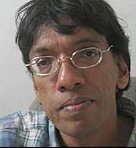2014 Can Be Year Of New Departure
By Jehan Perera -December 30, 2013 |
 This
New Year will be a year of change as the government faces a make or
break situation internationally. The next session of the UN Human Rights Council in
Geneva in March is positioned to deliver a resolution that calls for an
international probe into Sri Lanka’s conduct of its war. The weeks and
months to come are therefore going to be crucial. The international
community is watching whatever steps Sri Lanka takes in the direction of
greater human rights, national reconciliation and accountability.
Unless change happens, the government and the country too will be at the
receiving end of UN-sanctioned scrutiny that will leave it little room
to manoeuver. International sanctions of one kind or another will be a
step away.
This
New Year will be a year of change as the government faces a make or
break situation internationally. The next session of the UN Human Rights Council in
Geneva in March is positioned to deliver a resolution that calls for an
international probe into Sri Lanka’s conduct of its war. The weeks and
months to come are therefore going to be crucial. The international
community is watching whatever steps Sri Lanka takes in the direction of
greater human rights, national reconciliation and accountability.
Unless change happens, the government and the country too will be at the
receiving end of UN-sanctioned scrutiny that will leave it little room
to manoeuver. International sanctions of one kind or another will be a
step away.
In this context, the government will necessarily have to change course
in the New Year. It can no longer go down the old path that lay down a
policy of centralization and uniformity, in which the government’s top
leaders sought to control society and make it uniform. It may be
recalled that shortly after the war’s end, President Mahinda Rajapaksa said
that henceforth there will be no majority or minority but only patriots
and traitors. The government’s vision of centralization and uniformity
was encapsulated in its post-war slogan of “one country, one people.”
It also meant singing the national anthem in only one language, and not
two, unlike the national anthem of South Africa which
is sung in five languages and from whence the government hopes to get
support to counter the international demands being placed on it.
The essential feature of the government’s post-war policy has been the
centralization and concentration of power, which even its cabinet
ministers do not like as it marginalizes them too. Belying the general
expectation that the end of the war would lead to a reduction in the
role of the military there has been a continuing spurt in the growth of
the military budget and the role of the military in civil society. This
has been accompanied by a concurrent undermining of the institutional
autonomy that might have protected pluralism and diversity in society.
The independence of the public service and judiciary amongst others has
been laid low. The 18th Amendment concentrated the powers of
appointment of all top state bodies in the hands of the President.

